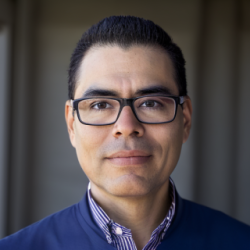Nearly half (47.5%) of physicians with additional professional degrees say that these degrees had little effect on their career, according to a new Doximity poll of 2,167 physicians. Moreover, 25% of physicians polled have considered getting an additional degree because of career growth opportunities, whereas 27% have opted not to pursue an additional degree because they do not believe it would advance their career.
The clinical specialties that reported the most additional degrees were pathology (70% of responding physicians), neonatology (56%), general surgery (53%), and emergency medicine (52%). Pathologists and neonatologists were the most likely to say that having another degree improved their career, whereas general surgeons and emergency medicine physicians were the most likely to report their additional degrees had little effect on their career.
As pathologists are typically laboratory-based, additional graduate degrees in science may benefit their careers with additional research and analytic skills. While many of them have additional degrees, surgeons and emergency medicine doctors may learn their hands-on jobs through clinical rotations and fellowships. In this poll, the specialists least likely to report having an additional degree (not shown above) were ENTs (30%), endocrinologists (33%), family physicians (38%), and gastroenterologists (37%).
States with the highest proportion of physicians who reported another degree were Tennessee (62%), Arizona (56%), and Connecticut (55%). Additionally, physicians in Maryland were the most likely to report that obtaining an additional degree helped advance their career (40%), along with physicians in Tennessee (38%), Minnesota (35%), and Wisconsin (33%). States with physicians who say that an additional degree has had little effect on their career include Louisiana (37%), Connecticut (35%), and California (29%).
States with the highest percentage of physicians who reported they do not have an additional advanced degree included South Carolina (63%), Wisconsin (62%), and North Carolina (61%). Although these physicians did not have an additional advanced degree, physicians in Michigan (41%), Indiana (37%), and New York (34%) were most likely have considered going back to school.
Some of the most common additional degrees for physicians include an MHA, MPH, MBA, JD, PharmD, and PhD, and additional advanced degrees can be earned at any stage in a physician’s career — before, during, or after medical school.
Some physicians obtain a graduate degree prior to medical school to strengthen their application and inform their future work. Dr. Frank Metzger, an internal medicine physician in Mesa, Arizona commented, “Surprised that none [of the other comments on the poll] report pharmacy degree[s], so far. I have a pharm degree from prior to med school. I do think that it helped somewhat with the basics of pharmacology in medical practice, but mostly that it gave me an edge in securing drug trials when I started to do medical research.”
According to the AAMC’s 2018 survey of graduates, 10% of graduates obtained a combined degree when earning their MD, with 3% earning an MD-PhD. An increasingly popular dual degree for medical students is an MPH; 2010-2018 data found a 434% increase in U.S. MD-MPH graduates. Many public health degrees are two-year programs for non-MDs, but can be a one-year gap program for medical students who choose to take a year off before their residency.
Dr. Jeffrey Blount, a neurosurgeon in Alabama, said, “[An] MPH is helpful, but this is very individual-specific. A good program is demanding and takes time from other good things. [I] recommend not doing a program just to do it, but rather consider carefully its contribution to your individual program and growth.”
While an MD/DO is a terminal degree, many physicians choose to seek out an additional graduate degree after working in their specialty to move toward managerial positions, health law, industry, or research. Some clinicians also transition because they want to create a change in health care that can be more effectively accomplished through health law, ethics, or policy.
“I thought about getting a law degree,” said Dr. Karen McShane, an ob/gyn in New York. “I often feel that being a lawyer is the only way to make sweeping changes for many patients rather than focusing on the needs of each individual patient.”
Obtaining an additional advanced degree can inform a physician’s future career path, either by ensuring their success in medical school or providing additional career opportunities outside of clinical care. While many physicians feel that an additional degree has opened up doors to other fields within medicine, pursuing another degree is an individual-specific decision that many physicians say should be made with intention and planning to ensure it is worth the time, effort, and cost.







